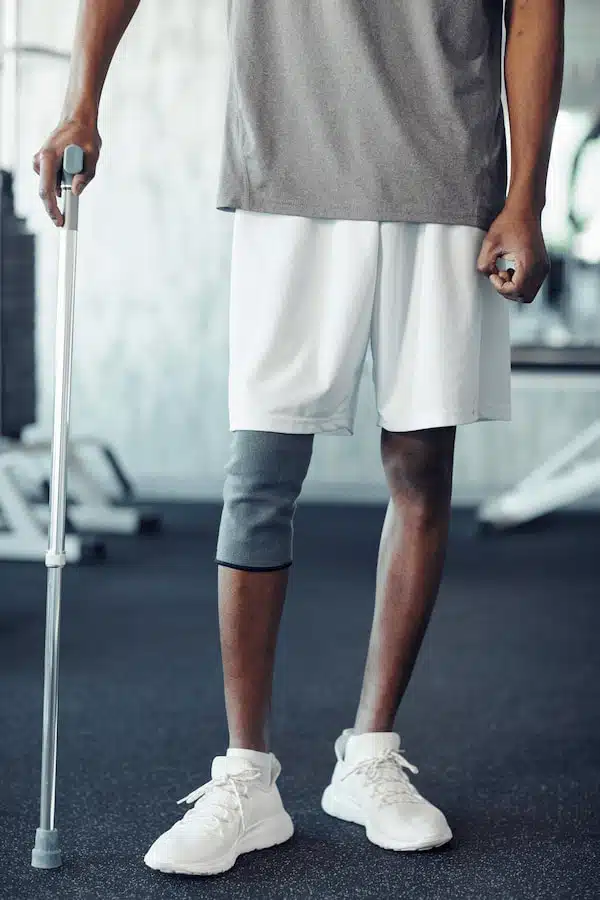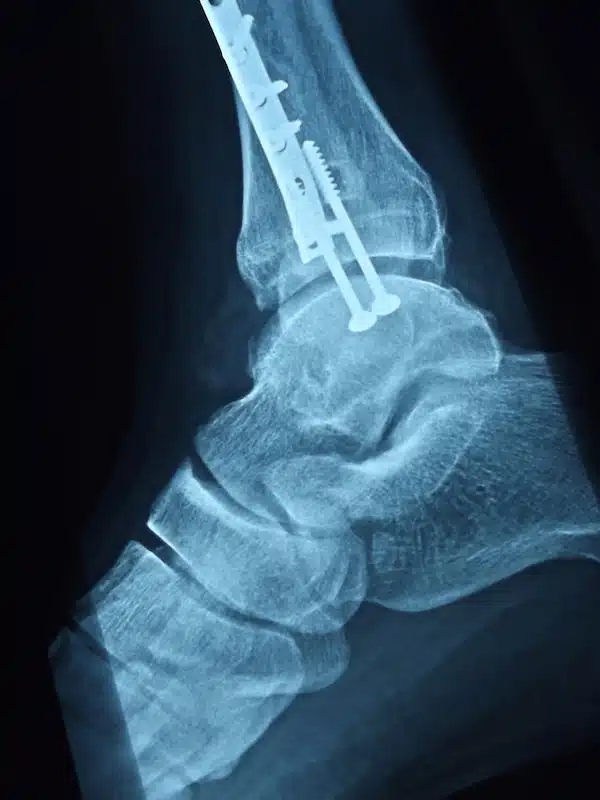Workers Compensation
Complete healthcare services are provided by Better Care Chiropractic and Physical Therapy, a specialty medical facility, to employees who have been injured at work.
To provide unbiased medical care to employees who suffered illnesses or accidents related to their jobs, a legislative framework known as workers' compensation was established. The primary objective of workers' compensation is to guarantee that injured workers receive prompt medical attention and financial support as they heal from their injuries.
Our clinic's extensive services, tailored treatment programs, and an interdisciplinary approach are intended to facilitate the successful healing and reintegration of wounded workers back into the workforce.
What is Workers Compensation?
Through workers' compensation insurance, employees who become ill or are injured at work can get financial and medical support. It is sometimes called workman's compensation or workers' compensation.
It ensures that workers receive the assistance they require to recover from workplace injuries, acting as a vital safety net for them.
Workers compensation emerged as a response to the harsh working conditions brought about by the Industrial Revolution. Before it was implemented, hospital access was often limited, and injured workers often faced significant financial challenges.
The primary objective of workers' compensation is to safeguard employers and employees. A no-fault system allows employees to receive health care and financial support without having to prove that their employer was negligent. In return, employers are shielded from costly lawsuits stemming from workplace accidents.

Injuries Acceptable in Workers Compensation
Through the vital workers' compensation system, employees who get illnesses or injuries at work are eligible for financial and medical benefits.
Employers who understand the range of injuries covered by the legislation can prioritize the safety and well-being of their employees while also complying with legal requirements.
Work-related injuries covered by workers' compensation

Accidental injuries
An accident is defined as physical damage that occurs suddenly and unexpectedly during work. These injuries can range greatly, from minor scrapes and bruises to more catastrophic harm like fractures or head traumas.
Workers' compensation often covers medical costs, lost wages, and rehabilitation costs in cases of unintentional injury. To ensure that the workers' compensation claim is accurately documented, employees must report any injuries to their employers as soon as possible and get medical attention.
Occupational diseases
Occupational diseases are illnesses that result from working in hazardous environments or from extended exposure to harmful materials. These conditions may manifest immediately or progressively over time.
Medical expenses, lost wages, and disability benefits are covered by workers' compensation for employees suffering from occupational diseases. Employers bear the responsibility of establishing a secure work environment and implementing the necessary safety protocols to mitigate the likelihood of these ailments.
Repetitive motion injuries
When the musculoskeletal system is stretched by repeated activities or motions, repetitive motion injuries occur. These injuries are common in jobs that require repetitive motions, including typing or working on an assembly line.
Workers' compensation covers medical expenses, physical rehabilitation costs, and short-term disability benefits for those with RSIs. Early intervention and timely reporting are essential for the management and treatment of these injuries.
Examples of common work-related injuries eligible for compensation
Musculoskeletal injuries (e.g., back strains, sprains)
A musculoskeletal injury is defined as harm to the muscles, tendons, ligaments, nerves, and other soft tissues in the body. These injuries are frequently caused by repetitive motion, overexertion, and workplace mishaps.
Fractures and bone injuries
Fractures and bone injuries can occur in a range of industries and occupations, from construction sites to office settings. These injuries are commonly brought on by hard lifting, falls, hitting objects with one's hands, and accidents involving equipment.
Head and brain injuries
Head or brain trauma can result in severe consequences, such as lifelong disabilities. These wounds may be the consequence of vehicle accidents, falling, being struck by objects, and being exposed to hazardous materials.
Burns and other thermal injuries
Burns from coming into contact with hot surfaces or materials happen often in several industries, such as manufacturing, food services, and construction. These burns can leave scars, require ongoing medical attention, and be extremely painful. Workers who suffer these types of injuries may be entitled to compensation for their medical bills, lost wages, and rehabilitation costs.


Respiratory and lung conditions
Employees in many jobs are exposed to hazardous chemicals and pollutants, which can lead to respiratory and lung conditions. Certain illnesses may qualify an employee for disability benefits, ongoing medical treatment, and salary loss compensation.
Hearing loss and other sensory impairments
Jobs requiring a lot of noise, like construction or manufacturing, can eventually lead to hearing loss. Workers who have occupational hearing loss may be eligible for benefits covering medical examinations, hearing devices, and other associated expenses.
Mental health conditions resulting from work-related stress or trauma
This is experienced by first responders, military personnel, or workers who have witnessed horrific incidents. Among the symptoms include severe anxiety, flashbacks, and nightmares. brought on by excessive levels of stress at work, bullying at work, or tension from the job itself. It could lead to decreased productivity and absenteeism.
Other work-related injuries or illnesses
An employee's injuries at work may have a major effect on their physical and mental well-being. Fortunately, several countries have established workers' compensation programs to provide financial assistance and medical attention to employees who suffer similar accidents.
Why Choose Better Care Chiropractic & Physical Therapy
Better Care Chiropractic & Physical Therapy is a great choice for anyone seeking the best care available for injuries obtained through workers' compensation.
Better Care Chiropractic & Physical Therapy is an established name in the field because of its highly skilled staff of professionals and commitment to providing comprehensive, personalized care.
Medical Evaluation and Treatment
Initial assessment and diagnosis
To ensure that injured workers receive the care they need, medical evaluation and treatment are crucial in workers' compensation cases. Since they lay the groundwork for customized treatment plans and pain management techniques, the initial assessment and diagnosis are critical stages in this process.
Injury-specific treatment plans
After the preliminary assessment and diagnosis are finished, healthcare providers can design customized treatment plans that target individual worker injuries. These programs outline the actions that must be taken to hasten recovery and return the worker to optimal health.
Pain management techniques
An essential component of the entire treatment strategy in workers' compensation cases is pain management. Healthcare professionals can help employees regain a higher quality of life and speed up their rehabilitation process by properly managing and reducing pain.
Rehabilitation and physical therapy
Rehabilitative physical therapy and occupational therapy are intended to enhance the wounded worker's general state of health and ability to function.


Work-related Injury Care
Prompt and comprehensive care for work-related injuries
Workplace injuries can have a big effect on the worker as well as the company. Prompt and comprehensive care is necessary to ensure a speedy recovery and minimize the impact on productivity.
Documentation and reporting for workers' compensation claims
Accurate reporting and recordkeeping are crucial for managing work-related injuries successfully. Employers must maintain detailed records of the incident, including the date, time, location, and kind of injury incurred. These documents serve as the foundation for workers' compensation claims and aid in establishing accountability.
Collaboration with employers and insurance providers
Effective management of work-related injuries requires cooperation between insurance companies and employers. Strong ties between employers and insurance providers that specialize in workers' compensation should be cultivated. This partnership guarantees effective communication, prompt claim processing, and fair reimbursement.
Case Management and Advocacy
Assistance with workers' compensation paperwork and processes
The paperwork and processes involved in workers' compensation can be very burdensome for injured workers. This portion of the assistance is designed to reduce the workload by guiding individuals through the steps and ensuring that all paperwork is accurately completed and submitted on schedule.
Coordination of care with specialists and other healthcare providers
Injured workers frequently require specialized medical care to expedite their recovery. Coordinating therapy management with specialists and other healthcare providers ensures a seamless and comprehensive process.
Rehabilitation planning and support
Rehabilitation planning, which attempts to facilitate the injured worker's return to full functioning, is a crucial component of workers' compensation. This means figuring out what the individual needs, setting realistic goals, and implementing personalized rehabilitation programs.
Communication with employers, insurers, and legal representatives
Clear and effective communication between injured workers, employers, insurers, and legal counsel is essential to an efficient workers' compensation process. Transparent communication speeds up the decision-making process and helps to prevent misunderstandings by making sure that all parties are informed.

Benefits of Choosing Our Workers' Compensation Doctors
Making the right medical decisions is crucial when it comes to workers' compensation claims. We take great pride in having a team of highly qualified and experienced physicians who specialize in occupational medicine at our medical center.
Our commitment to excellence and depth of experience set us apart from the competition and ensure that our patients receive the best care and support during their recovery.
All-inclusive care tailored to workers' compensation claims is provided by our medical staff. They are adept at recognizing and treating a broad variety of illnesses linked to the workplace, including musculoskeletal disorders, chemical exposures, repetitive stress injuries, and occupational lung diseases.
With their skills, they can determine the precise nature of the wounds and offer a customized care plan that promotes speedy healing.
Comprehensive Medical Care for Workplace Injuries
The purpose of the workers' compensation system is to protect employees who are hurt at work. This insurance policy provides injured workers with medical benefits, wage replacement, and rehabilitation support regardless of fault.
Workers' compensation provides financial support for medical care, ensuring that employees receive necessary treatment promptly without having to pay a large sum out of pocket.
After being hurt at work, injured employees require extensive medical attention to recover and get well. Through the workers' compensation system, employers can provide early diagnosis, specialized care, pain management strategies, mental health support, and rehabilitation programs.
By prioritizing employee health and well-being, organizations may provide a safe and supportive work environment and hasten the recovery of injured workers. Contact us now!


